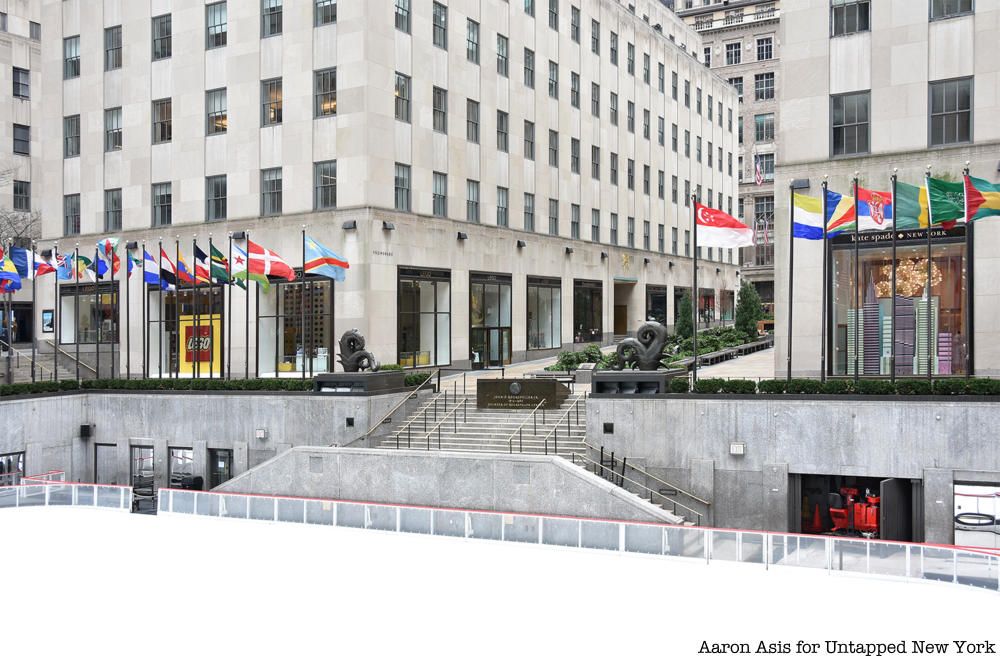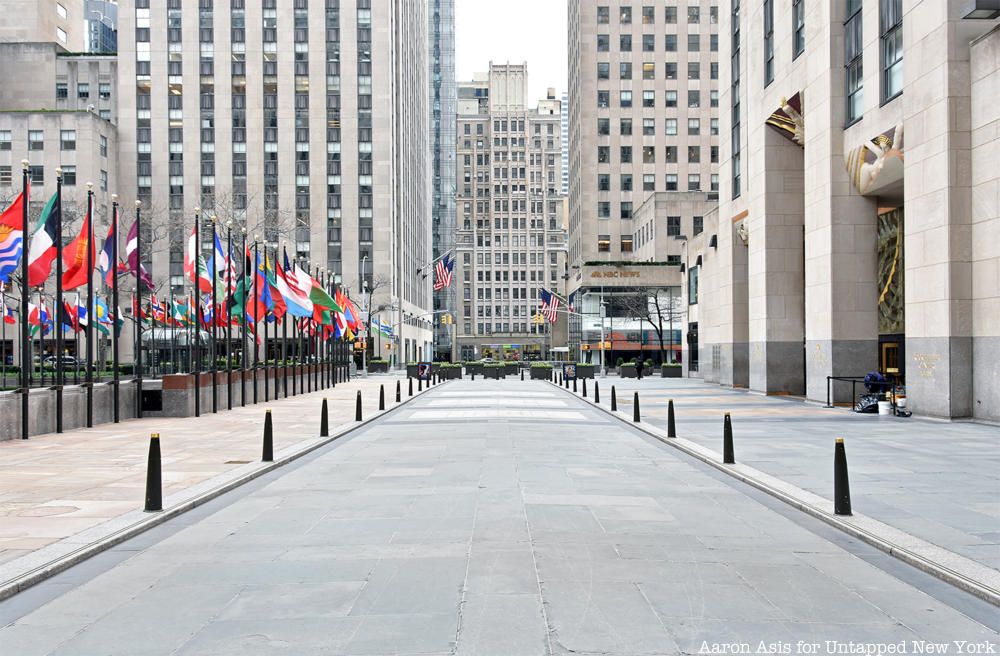Last Chance: The Annual Orchid Show Soars at the New York Botanical Garden
The vibrant colors of Mexico come to NYC for a unique Orchid Show at NYBG!


The flags around Rockefeller Center sway in the wind, but that’s about all that’s moving in one of New York’s most touristy areas. Over the last week as the coronavirus continues to spread in New York, many of the city’s most crowded sites like the Brooklyn Bridge and Grand Central have become deserted as a result of social distancing and stay at home measures.
“Walking through Rock Center without people feels like a strange pairing analogy — where one half of the pair is missing — and the remaining half of the pair feels a bit more vulnerable than you expected,” Aaron Asis said. “But despite the lack of people (keep it up!), it is wonderful to still see the iconic flags raised proud, demarcating the plaza’s famous ice skating rink…ready to welcome us back, as soon as we are ready.”

Rockefeller Center is situated on land bought by physician David Hosack in 1801 for $5,000. Hosack opened the country’s first botanical gardens, the Elgin Botanic Gardens, on the rural property in 1811. In 1823, Columbia University took ownership of the land before moving its campus to Morningside Heights nearly a century later.

In 1928, Columbia then leased the property to financier John D. Rockefeller, the mastermind behind the center’s construction, who envisioned the property as the site for the Metropolitan Opera. Yet after the stock market crash of 1929, plans for a new opera house were completely abandoned. A plan called the “H Plan” attempted to create facilities for television, radio, and music, as well as four theaters. Construction of Rockefeller Center commenced in 1931 and was completed in 1939, with buildings like Radio City Music Hall sprouting up.
Today, Rockefeller Center is the world’s largest privately owned complex and prior to the virus, over 350,000 people per day traveled to Rockefeller Center. But for now, it’s probably best that all of those 350,000 people stay home.
Next, check out the Top 10 Secrets of Rockefeller Center.
Subscribe to our newsletter